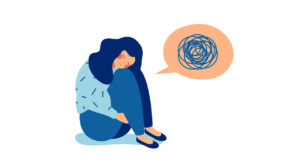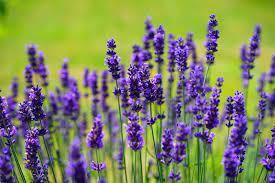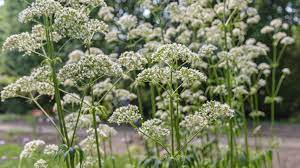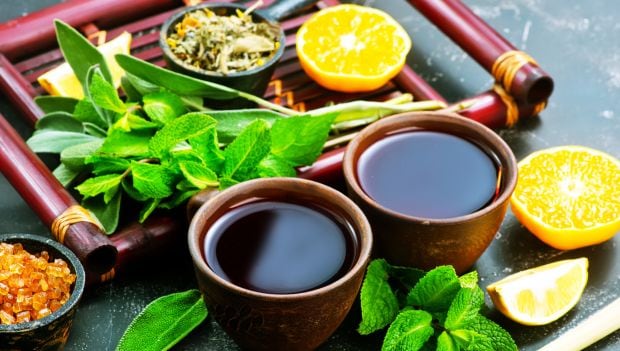Anxiety is one of the most common mental health disorders in the United States. It is characterized by excessive worry and fear, and it can be very debilitating for those who suffer from it. If you are looking for a way to reduce your anxiety symptoms, herbal remedies may be a good option for you. In this blog post, we will discuss 8 different herbs that have been shown to be effective in treating anxiety. We will also provide tips on how to use these herbs safely and effectively.
Contents
Defining Anxiety
 Anxiety is generally described as a feeling of worry, nervousness, or fear. It is considered a normal emotion that everyone experiences at one point or another. However, when anxiety becomes severe, it may interfere with daily activities and disrupt an individual’s ability to function properly.
Anxiety is generally described as a feeling of worry, nervousness, or fear. It is considered a normal emotion that everyone experiences at one point or another. However, when anxiety becomes severe, it may interfere with daily activities and disrupt an individual’s ability to function properly.
According to the National Institute of Mental Health, anxiety disorders are the most common mental illness in the United States, affecting 40 million adults. That’s 18% of the population. In fact, overall, anxiety is on the rise. A recent study showed that anxiety levels in America have increased significantly over the past few years.
Around the world, these mental disorder is increasing more after the COVID-19 pandemic. Because of the lockdown, people have lost their jobs which has led to an increase in money-related anxiety. Also, it has been found that the pandemic has increased anxiety and depression in children as well.
Anxiety disorders can be divided into several different types, including:
- Generalized anxiety disorder (GAD)
- Panic disorder
- Social anxiety disorder (SAD)
- Specific phobias
Each type of anxiety disorder has different symptoms. But all of them share one common feature: significant distress makes it difficult to function properly.
8 Herbal Remedies For Anxiety
Herbal remedies for anxiety are becoming more popular as people seek out natural ways to reduce stress and find calmness. While there are many different herbs that can be helpful for anxiety. Here are some of the most effective examples:
Chamomile
This is considered one of the best herbs for anxiety and has been used for centuries to help with stress and nerves. It is a caffeine-free tea, that is easy to find and brew. Chamomile can be enjoyed fresh or dry and is easily brewed with just boiling water. In recent studies, where researchers have found that Chamomile extract may have a mild anti-anxiety effect.
It is often suggested that consume Chamomile tea several times a day to help reduce stress levels. And almost 1500 milligrams of Chamomile extract per day for eight weeks. As, in this way, it has been found to help people with generalized anxiety disorder.
Lavender
 This fragrant herb has a long history of use for relaxation and sleep. It is also commonly used in aromatherapy, which can be helpful in reducing stress levels. Studies have shown that lavender oil can help to decrease anxiety and improve sleep quality.
This fragrant herb has a long history of use for relaxation and sleep. It is also commonly used in aromatherapy, which can be helpful in reducing stress levels. Studies have shown that lavender oil can help to decrease anxiety and improve sleep quality.
It is typically suggested to use lavender oil in a diffuser or add a few drops to your pillow before bedtime. You can also add a few drops of lavender oil to your bathtub for a relaxing experience. Moreover, lavender is also available in tea form and can be enjoyed throughout the day.
Ashwagandha
Ashwagandha is an herb that has been used in India for centuries as a natural treatment for anxiety and stress. The name Ashwagandha comes from the Sanskrit words “ashva,” meaning horse, and “gandha,” meaning smell. This herb is sometimes called “Indian ginseng” because of its similar properties to ginseng.
This herbal remedy is thought to work by reducing the levels of the stress hormone cortisol in the body. Cortisol is a hormone that is released in response to stress and can cause anxiety and other symptoms. Ashwagandha is available in capsule, tablet, or powder form. It can also be made into a tea by boiling the root in water for several minutes.
You can use it by taking 300-500 mg of standardized extract capsules daily. It is recommended by most herbalists to take it with food. If you are pregnant or breastfeeding, it’s best to avoid using this herb.
Kava
Kava is a plant that is native to the South Pacific islands. It has been used for centuries by the people of these islands for its calming effects. Kava is thought to work by reducing the activity of certain chemicals in the brain that is involved in stress and anxiety.
There are many different ways to take kava, but it is most commonly consumed as a tea. You can also find kava supplements in capsules or liquid form.
However, it is important to note that using Kava can make you drowsy, and cause liver problems. So it is important to talk with your doctor before taking it.
St. John’s Wort
It is considered an herbal medicine for mild to moderate depression and anxiety. St. John’s Wort is available in capsules, teas, and tinctures. The recommended dosage is 300 mg three times daily of a 0. This originated in Europe and has been used to treat mental health disorders for centuries.
Moreover, researchers have found that St. John’s Wort can be as effective as antidepressants for some people. Also, it has fewer side effects than many prescription medications.
Valerian
 Valerian is also an herbal supplement to help with anxiety and stress. It works by inhibiting the breakdown of a neurotransmitter called gamma-aminobutyric acid (GABA). This action results in increased levels of GABA in the brain, which has a calming effect.
Valerian is also an herbal supplement to help with anxiety and stress. It works by inhibiting the breakdown of a neurotransmitter called gamma-aminobutyric acid (GABA). This action results in increased levels of GABA in the brain, which has a calming effect.
A 2009 review of studies concluded that valerian is an effective and safe treatment for mild to moderate insomnia. In fact, it is believed that valerian may be as effective as some prescription sleep aids, but with fewer side effects.
Lemon balm
Lemon balm is another herbal remedy that has been shown to be effective in reducing stress and anxiety. This lemon balm works by increasing levels of the neurotransmitter GABA. A 2008 study found that lemon balm significantly reduced stress and improved calmness and concentration in a group of healthy adults.
Moreover, lemon balm is generally well-tolerated and is considered safe for most people. It works best when taken in combination with other calming herbs like chamomile or valerian. But there are positive responses from people who have used it alone as well.
Passionflower
Passionflower is a climbing vine native to the southeastern United States. It has been used for centuries as an herbal remedy for anxiety and insomnia. The herb is thought to work by increasing levels of a chemical called gamma-aminobutyric acid (GABA) in the brain.
A 2010 review of studies concluded that passionflower is effective in treating generalized anxiety disorder (GAD). GAD is a chronic and debilitating form of anxiety characterized by excessive worry and tension.
It is available in supplements, teas, and tinctures. It can also be applied topically as an oil or cream. Passionflower is generally considered safe, but it may cause drowsiness and dizziness. Passionflower should not be taken with sedatives or alcohol.
Therefore, these are the topmost effective herbal remedies for anxiety that can be used to find calmness.
Benefits of Using Herbal Remedies
 There are numerous benefits of using herbal remedies to treat anxiety. Here are some of the widely known benefits:
There are numerous benefits of using herbal remedies to treat anxiety. Here are some of the widely known benefits:
Fewer side effects
Natural herbal remedies have fewer side effects as compared to medications. This is because the natural herbal remedies work with your body, not against it. In fact, it is believed that natural herbal remedies can actually help to restore the balance of your body’s systems.
Easily available and affordable
As compared to medications, which can be quite expensive, natural herbal remedies are easily available and affordable. You can find them in your local grocery store or health food store.
Customizable
Natural herbal remedies can be customized to meet your specific needs. For example, if you are suffering from anxiety and stress, you can choose an herbal remedy that contains herbs that are known to be calming and relaxing. Also, if you have any allergies, you can easily find an herbal remedy that does not contain any ingredients that you are allergic to.
Used for centuries
Herbal remedies have been used for centuries to treat various ailments, including anxiety. This means that there is a wealth of knowledge and experience behind the use of herbal remedies. So, this works in your favor as you can be assured that herbal remedies are safe and effective.
Less dependant on medications
 By using herbal remedies to treat your anxiety, you will be less dependent on medications. This is because the natural herbal remedies work with your body, not against it. In fact, it is believed that natural herbal remedies can actually help to restore the balance of your body’s systems.
By using herbal remedies to treat your anxiety, you will be less dependent on medications. This is because the natural herbal remedies work with your body, not against it. In fact, it is believed that natural herbal remedies can actually help to restore the balance of your body’s systems.
The benefits of using herbal remedies are varied and wide-ranging. As you can see, there are many good reasons to consider using herbal remedies to treat your anxiety. So, if you are looking for a safe and effective way to reduce stress and find calmness, then consider using herbal remedies.
Other Self-Help Strategies
Although herbal remedies for anxiety are popular, they may not be for everyone. If you’re looking for other ways to reduce stress and anxiety, here are a few self-help strategies that may help:
Relaxation techniques
Many people have found that relaxation techniques can help reduce stress and anxiety. It works by helping you focus on your breath and letting go of intrusive thoughts. There are several techniques that are used for relaxation including:
- Progressive muscle relaxation
- Deep breathing
- Yoga
- Meditation
- Guided imagery
If you’re interested in trying a relaxation technique, there are many resources available to help you get started. You can find instructions and guidance online or in books. There are also classes offered in some communities.
Exercise
Regular exercise is another effective way to reduce stress and anxiety. It can help to improve your mood and increase your sense of well-being. Exercise can also provide other benefits such as improving your sleep, increasing your energy level, and reducing tension headaches. In fact, exercising daily is one of the most important things you can do for your health.
Get enough sleep
 You should always prioritize your sleep, but it’s especially important when you’re feeling anxious. A lack of sleep can make anxiety worse and can also lead to other health problems. Make sure you’re getting at least seven hours of sleep every night. Also, understand the importance of sleep in our daily life and how it affects our mental and physical well-being. You can implement some tips for a good sleep, such as:
You should always prioritize your sleep, but it’s especially important when you’re feeling anxious. A lack of sleep can make anxiety worse and can also lead to other health problems. Make sure you’re getting at least seven hours of sleep every night. Also, understand the importance of sleep in our daily life and how it affects our mental and physical well-being. You can implement some tips for a good sleep, such as:
- Establish a regular sleep schedule
- Keep a cool, comfortable environment in your bedroom
- Reserve the bed for sleep and sex and create an environment that promotes relaxation
- Limit exposure to bright light in the evening
Avoid substance abuse
Substance abuse is actually a fashion of self-medication. People who abuse drugs or alcohol are trying to cope with their anxiety by using substances as a crutch. This might work in the short term, but it will only make things worse in the long run. If you’re struggling with anxiety, it’s important to stay away from drugs and alcohol. Otherwise, these things will only aggravate your anxiety and make it harder to cope.
Eat a balanced and healthy diet
This self-care holds another level of importance when you’re struggling with anxiety. Eating a balanced diet helps to ensure that your body is getting the nutrients it needs to function properly. When you’re anxious, your body is under a lot of stress and it needs the right fuel to help it cope. Make sure to eat plenty of fresh fruits and vegetables, whole grains, lean protein, and healthy fats.
So, these self-help strategies are always a great starting point when you’re trying to learn how to cope with anxiety. Be patient with yourself and give these things a try. With time and practice, you’ll start to see a difference in your anxiety levels. And Remember, if your anxiety is proving to be too much for you to handle on your own, don’t hesitate to reach out for professional help.
Conclusion
To conclude, herbal remedies for anxiety are of great benefit to many people. They can be used safely and effectively with little to no side effects. If you are struggling with anxiety, consider trying one or more of these herbs to see if they help you find calmness and reduce stress.
However, these all herbal remedies are not approved by FDA, so please take these recommendations with healthy skepticism. And speak to your physician before trying any of them.
For more information, please contact MantraCare. Anxiety is a common mental health condition characterized by persistent feelings of worry, fear, and apprehension. If you have any queries regarding Online Anxiety Counseling experienced therapists at MantraCare can help: Book a trial Anxiety therapy session


